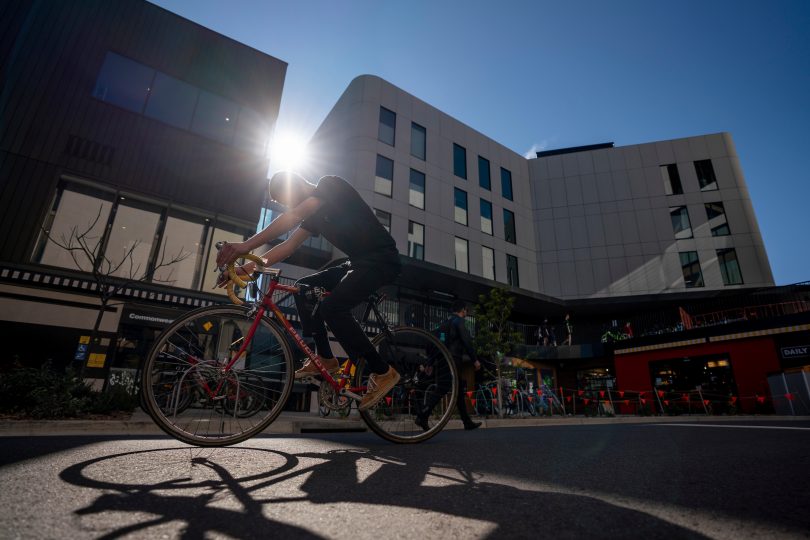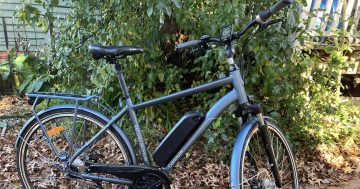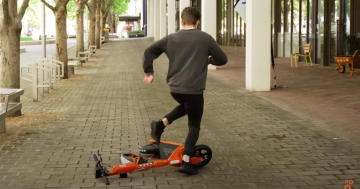
The Greens suggest bicycle helmets should be optional. Photo: Lannon Harley, ANU.
Active travel – riding a bike or walking – has lots of benefits. It’s healthy, as long as a car or slip hazard doesn’t terminate your journey and the more people who ride to work, the fewer cars or on the road.
That reduces congestion, and while we have the petrol burners, it will also help cut emissions and make Canberra’s air even more rarified, although on that point, the sooner we transition to electric vehicles, the better.
So elements of the Greens discussion paper on ways to make active travel safer and more attractive are welcome.
Extensions to and better maintenance of pathways are always a good thing, but the evidence would need to be compelling to fix spending at the equivalent of 20 per cent of the capital works road budget on dedicated purpose-built infrastructure for walking, cycling and active travel, as suggested.
The discussion paper also suggested that an audit of footpaths and shared paths be publicly reported on an annual basis with a target of 90 per cent to be maintained in ‘good condition’.
A path audit would provide a clear picture of the network, but the 90 per cent figure may be an ambit claim. The costs could be prohibitive.
The Greens also want to lump in e-scooters and e-bikes, even calling for the Sustainable Household Scheme to cover the latter, but there aren’t too many health pluses in those, and the paths will get very crowded.
Pedestrians have enough issues with the lycra crew and vice versa without both having to contend with zero-emission speedsters.
But the reality is that’s what is starting to happen will only become more common.
The paper also suggests that traffic-light sequencing preference pedestrians and riders over cars. Perhaps it could also suggest extra road rule training to riders of all ilk who regularly flout traffic lights and fail to indicate.
The more “innovative” proposals include trialling car-free days and car-free zones in each electorate, removing some roads or at least reducing their size to make more space for cyclists and pedestrians.
Reducing urban car parking, decoupling parking from apartment sales, introducing lower speed limits, and amending mandatory helmet laws were also suggested.
Most of these just don’t pass muster in a city as spread out as Canberra and with such a quality road network.
Car-free days would be mere gestures, and restricting access to cars in some places other than pedestrian malls is impractical and would infringe on people’s rights.
To expect people to give up the car entirely in a city like Canberra for a bike or the tram, and therefore not need a parking space would be a gift to developers and arrogantly assumes anyone can adopt a lifestyle limited to inner-city bohemians who won’t need to cart home a weekly shop or want to travel beyond their urban village.
Instead of reducing parking, the emphasis should be on charge points for EVs.
And when it comes to helmets, the Greens point to how making them mandatory lowers cycling participation rates. They suggest helmets be optional. They also helped reduce the number of deaths and brain injuries. So forget it.
Original Article published by Ian Bushnell on Riotact.





